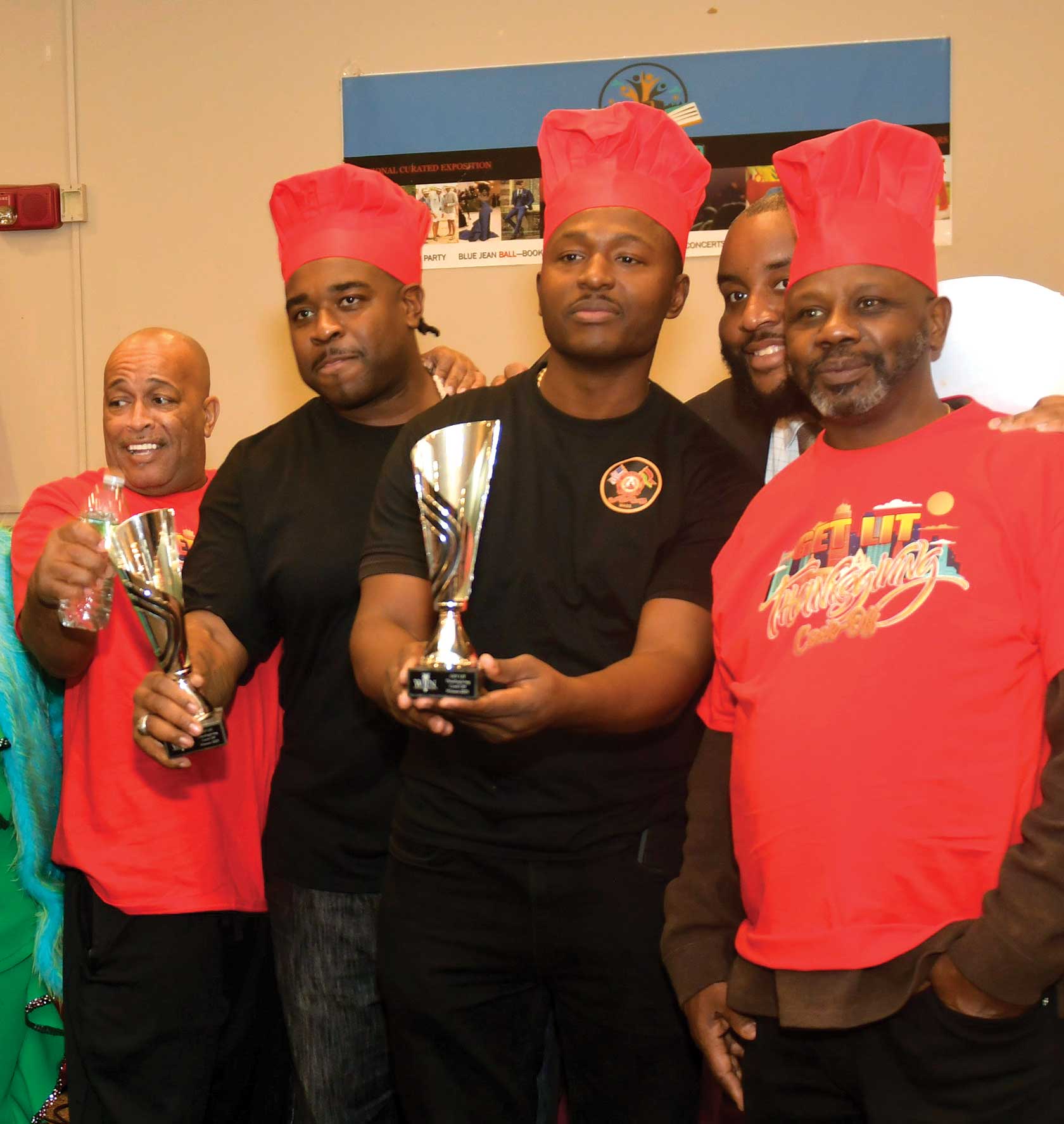Members of the Boston Fire Department came out on top when they went head-to-head in a cook-off against Boston police officers this month to raise awareness about educational challenges following the COVID-19 pandemic.
The pre-Thanksgiving cook-off, held over two days beginning Nov. 19, was organized by the Witherspoon Institute, which launched the Get Lit initiative aiming to raise awareness about the post-pandemic learning crisis.
That issue was highlighted by researchers from Harvard and Stanford who uncovered steep learning losses, particularly in communities of color, stemming from remote learning during the pandemic. Their findings, which also alerted districts to catch up, were reported in the Education Recovery Scorecard, officials said.
A city officer who attends the institute’s regular Get Lit gatherings in Roxbury suggested the cook-off as a fun event that also highlighted a critical education issue.
“It was kind of a cuckoo concept that these large organizations could move that fast, right?” said Alda Witherspoon, founder of the Witherspoon Institute, but she said it worked because the commitment was there.
The event aimed to attract attention to the Get Lit program and the educational challenges still facing students. While all students lost some ground in their studies during the pandemic, students in mostly low-income communities and school districts with predominantly students of color experienced substantial learning losses, according to the Education Recovery Scorecard project.
Separate research from the World Bank found that, worldwide, this generation of students is at risk of losing $17 trillion in earnings due to pandemic-related school closures.
Witherspoon said that as she worked to organize the event, going to police precincts and firehouses, she found limited awareness around the learning losses.
“Everybody who we spoke to [about the cook-off] was really excited about doing something for kids,” Witherspoon said. “Then I shared [about] this whole post-COVID learning crisis and, like I suspected, people aren’t really aware of the impact on these youths.”
Witherspoon said she hopes that awareness can grow across Boston and beyond. The institute’s Get Lit initiative is a national effort, also being held in Brooklyn, New York, and Little Rock, Arkansas. The program hopes to expand to include Atlanta, Georgia, as well, starting in the spring.
“It’s not a Boston problem; it’s not a U.S. problem. Literally everybody was unplugged,” Witherspoon said. “Children across the world have been affected.”
In Boston, the Get Lit program holds a regular monthly event at the Nubian Square branch of the Boston Public Library, and Witherspoon said she hopes to expand to other branches as well.
The monthly event includes “reader leaders,” featuring political, religious or business leaders from the community. Volunteer readers include District 7 City Councilor Tania Fernandes Anderson, who appeared in September, and at-Large City Councilor Ruthzee Louijeune, who read in August. The monthly event also includes educational workshops in social-emotional learning and financial literacy.
Witherspoon said the events also feature a live DJ, line dancing and “wrap-around energy.”
“While it is books, we do all kinds of things around the book that get the kids all energized and engaged,” she said. “By the time we sit down, and we read the book, they’re just locked right in.”

